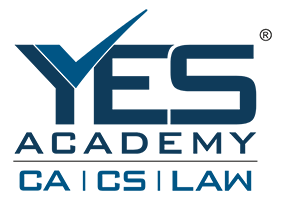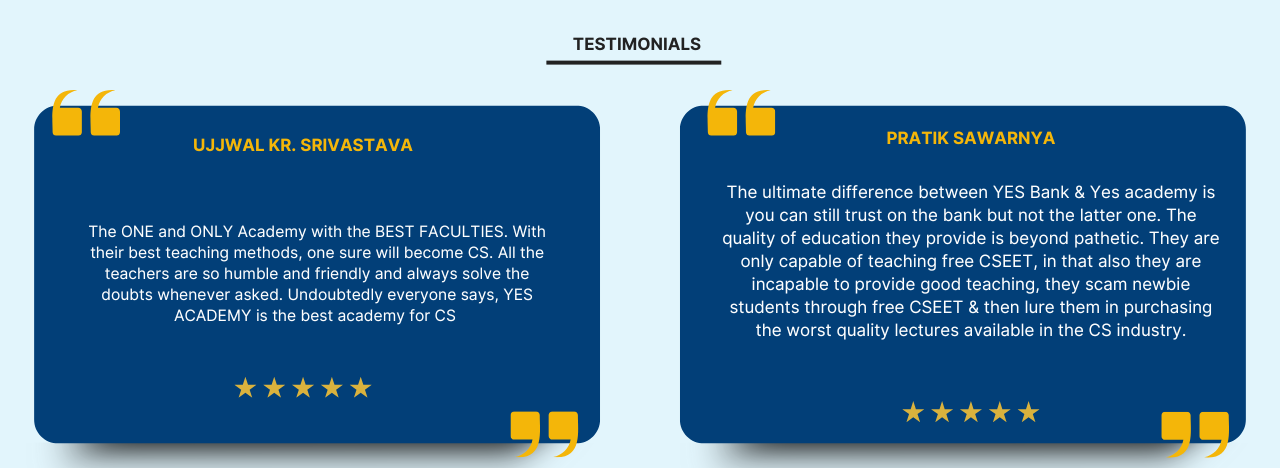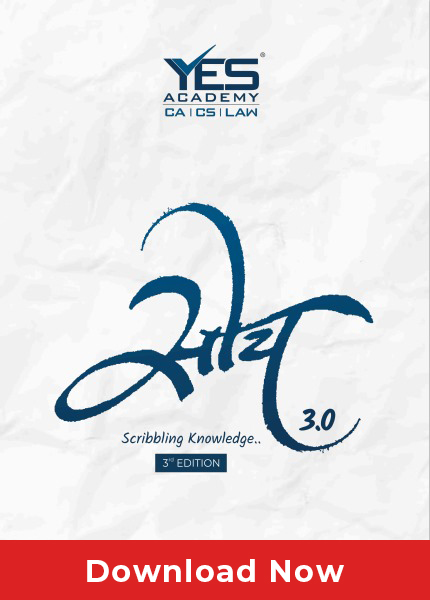Well, the good news is Mathematics is not compulsory for becoming a QUALIFIED company secretary. However, it is highly beneficial if one has a strong foundation in maths to excel in any field. While CS primarily deals with legal and administrative aspects of corporate governance, maths plays a significant role in various areas of their work. In the following words, Let me break it down for you in a quick manner:
I will first put forward the uses of mathematics in the Corporate world:
Financial Analysis and Reporting: CS is involved in financial analysis and reporting. They have to understand financial statements analyse data, and interpret financial ratios. Mathematics. A solid understanding of mathematics is good for a CS to communicate financial insights to stakeholders effectively.
Compliance and Regulatory Framework: Only a CS is responsible for ensuring compliance with various laws and regulations. While maths may not be directly involved in compliance activities, it helps comprehend numerical thresholds, calculate penalties, and understand quantitative aspects related to compliance obligations.
Corporate Finance: Maths plays a crucial role in corporate finance, and CS frequently collaborates with finance teams on matters such as capital structure, investments, and valuation. Proficiency in mathematics enables CS to assess financial viability, analyse investment proposals, and contribute effectively to strategic decision-making.
Risk Management: Maths is an integral part of risk management, a vital aspect of a CS role. They need to assess and manage various financial, legal, operational, and reputational risks.
Corporate Governance and Board Support: CS is responsible for facilitating board meetings, maintaining records, and ensuring compliance with corporate governance standards. Maths helps organise and analyse data, prepare reports, and maintain accurate records.
CAN I TAKE CS WITH BASIC MATHS?
Absolutely Yes!! You do not have to come from a Commerce or any mathematics-based field to pursue CS. That's The Beauty of CS course. However, it is good for a student if he belongs to a Commerce background or has little knowledge about commerce subjects. So here's the deal: when pursuing a Company Secretary qualification, having a strong foundation in basic maths can be super helpful. While CS doesn't heavily focus on complex mathematical concepts like calculus or trigonometry, it does involve a fair amount of number crunching.
Don't stress too much if you are not a math whiz. Basic maths skills like arithmetic, percentages, and ratios should be more than sufficient to handle the mathematical aspects of the CS course. You'll deal with financial statements, analyse data, and understand key financial concepts. It's like doing some accounting stuff, you know?
CS isn't all about numbers. It also covers various subjects like law, corporate governance, business management, and ethics. So, think only a little if you're more into legal and corporate stuff. You should be good to go as long as you have a decent grasp of basic maths.
CAN I DO CS AFTER 12TH COMMERCE WITHOUT MATHS?
Dude! I am a Qualified CS Professional, and once a CS student can tell you, mathematics is never a requirement to become a qualified CS. You can pursue a CS course after completing your 12th in the commerce stream, even if you didn't take maths. Maths is not a mandatory requirement for CS.
The CS course primarily focuses on law, finance, accounting, economics, and corporate governance. While having a strong foundation in maths can help you understand certain financial concepts, it's not a strict prerequisite.
Now, remember that CS involves some numerical aspects, like Financial Management and interpreting financial statements. Don't let that discourage you! You can handle the number game with a little extra effort and a positive mindset.
IS THERE MATHS IN CS FOUNDATION/CSEET?
CS Foundation had a subject related to Mathematics, but CS Foundation no longer exists. It has been replaced by CSEET, which has no maths-related subjects.
At the Foundation/CSEET level, you'll encounter subjects like Business Communication, Legal Aptitude, Logical Reasoning and Economic and Business Environment. While these subjects don't heavily emphasise complex mathematical concepts, some numerical aspects are involved.
You'll come across basic arithmetic, percentages, ratios, and a touch of basic algebra. It's more about applying these concepts to practical scenarios rather than diving deep into advanced math theories.
The idea behind including some math in the Foundation/CSEET is to ensure aspiring Company Secretaries have a well-rounded understanding of business and financial concepts.
Don't sweat it! Suppose you're not a math enthusiast, with a little effort and some practice. In that case, you can handle the mathematical aspects of the Foundation/CSEET. There are plenty of study materials and resources available to help you out.
So, while there is a sprinkle of math in the Foundation/CSEET, it's nothing you can't handle, my friend. Just keep your chill vibes intact, put in the work, and rock that Company Secretary journey! You got this!
WHAT ARE THE SUBJECT IN CS?
The New Syllabus (2022) shall comprise an Online Company Secretary Executive Entrance Test (CSEET) consisting of Four (4) parts, Seven (7) Papers in the Executive Programme and Seven (7) Papers in the Professional Programme, including Two Papers as elective papers. The vocabulary of CSEET, Seven (7) Papers of the Executive Programme and Seven (7) Papers of the Professional Programme, including electives under the ICSI Syllabus (2022), are as under:
- The Syllabus of the Company Secretary Executive Entrance Test (CSEET) comprises the following four parts:
1. Part 1: Business Communication (50 Marks)
2. Part 2: Legal Aptitude, Logical Reasoning and Quantitative Aptitude (70 Marks)
3. Part 3: Economic and Business Environment (50 Marks)
4. Part 4: Current Affairs (30 Marks)
- CS Executive Programme: It shall consist of 7 subjects divided into two groups as follows:
Group A:
- Jurisprudence, Interpretation & General Laws (100 Marks)
- Company Law & Practice
Part I – Company Law – Principles and Concepts (60 Marks)
Part II – Company Administration & Meetings (40 Marks)
- Setting Up of Business, Industrial & Labour Laws
Part I – Setting Up of Business(60 Marks)
Part II – Industrial & Labour Laws (40 Marks)
- Corporate Accounting and Financial Management
Part I – Corporate Accounting (60 Marks)
Part II – Financial Management (40 Marks)
Group B:
- Capital Market & Securities Laws
Part I – Capital Market (40 Marks)
Part II – Securities Laws (60 Marks)
- Economic, Commercial and Intellectual Property Laws
Part I – Economic & Commercial Laws (60 Marks)
Part II – Intellectual Property Laws (40 Marks)
- Tax Laws & Practice
Part I - Direct Tax (60 Marks)
Part II - Indirect Tax (40 Marks)
- CS Professional Programme: Again, It shall consist of 7 subjects divided into two groups:
Group A:
- Environmental, Social and Governance (ESG) – Principles & Practice
Part I – Governance and Sustainability (65 Marks)
Part II – Risk Management (20 Marks)
Part III- Environment & Sustainability Reporting (15 Marks)
- Drafting, Pleadings and Appearances
Part I - Drafting and Conveyancing (70 Marks)
Part II - Pleadings and Appearances (30 Marks)
- Compliance Management, Audit & Due Diligence
Part I – Compliance Management (40 Marks)
Part II – Audit & Due Diligence (60 Marks)
- Elective *1 (Select one Paper out of 4 Elective Papers)
- CSR & Social Governance
Part I – Corporate Social Responsibility (50 Marks)
Part II – Social Governance (50 Marks)
- Internal and Forensic Audit
Part I – Internal Audit (60 Marks)
Part II – Forensic Audit (40 Marks)
- Intellectual Property Rights – Law & Practice (100 Marks)
- Artificial Intelligence, Data Analytics and Cyber Security – Laws & Practice
- Strategic Management & Corporate Finance
Part I – Strategic Management (40 Marks)
Part II – Corporate Finance (60 Marks)
- Corporate Restructuring, Valuation and Insolvency
Part I – Corporate Restructuring (40 Marks)
Part II – Valuation (20 Marks)
Part III – Insolvency, Liquidation & Winding-up (40 Marks)
- Elective 2 (Select one Paper out of 5 Elective Papers)
- Arbitration, Mediation & Conciliation
Part I – Arbitration & Conciliation (70 Marks)
Part II – Mediation (30 Marks)
- Goods and Services Tax (GST) & Corporate Tax Planning
Part I – Goods and Services Tax (GST) (70 Marks)
Part II – Corporate Tax Planning (30 Marks)
- Labour Laws & Practice (100 Marks)
- Banking & Insurance – Laws & Practice
Part I – Banking Laws (50 Marks)
Part II – Insurance Laws (50 Marks)
- Insolvency and Bankruptcy – Law & Practice (100 Marks)
This blog article has written by one of our students who has recently cleared her course.




